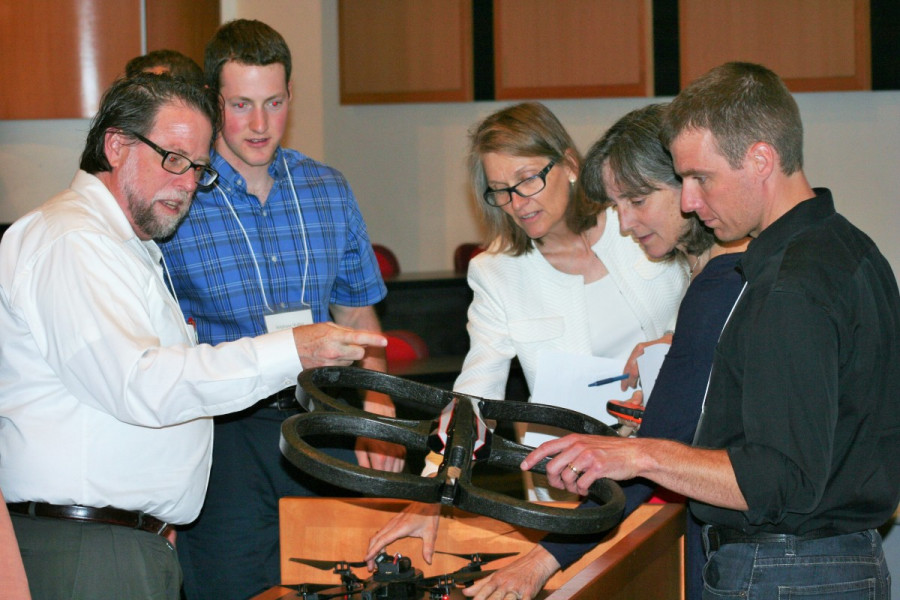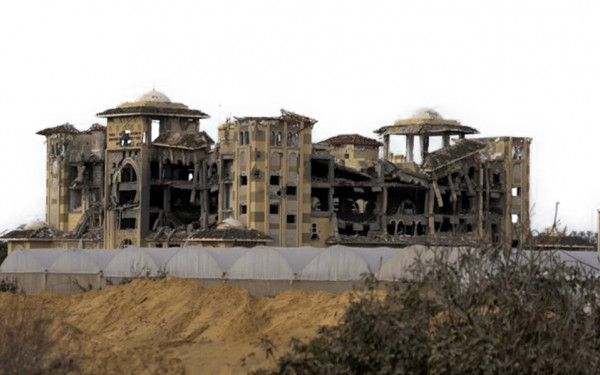Genocide Prevention Seminar Takes Place in Ottawa
uOttawa hosts 3rd Professional Training Program on the Prevention of Mass Atrocities
A Concordia-based research institute held a three-day seminar on genocide prevention geared towards professionals, diplomats, students and the military last week.
The Montreal Institute for Genocide and Human Rights Studies (MIGS) gave presentations on topics ranging from violence prevention technology, such as aerial drones and translation apps, to the child soldier crisis in Africa, to the mass atrocity crimes committed in Darfur and Syria.
Kyle Matthews, deputy director at the institute, led the training program with the likes of Roméo Dallaire, former force commander for the ill-fated United Nations peacekeeping mission in Rwanda during the 1993 genocide and Amy Pate of the National Consortium for the Study of Terrorism and Responses to Terrorism at the University of Maryland.
Day one included presentations from Dallaire and Shelly Whitman, an expert on child soldiers with the Roméo Dallaire Child Soldiers Initiative.
That evening, participants were invited to the home of the Swedish ambassador to Canada for a speech by Parliament Hill genocide prevention advocate and former Attorney General of Canada, Irwin Cotler.
“It is our duty to fight this heinous crime against humanity that is taking place as we speak—dare we utter its name,” said Cotler. “On the 70th anniversary of the liberation of Auschwitz, the fight against genocide has never been more urgent.”
On day two, Walter Dorn, scientist and professor at the Royal Military College of Canada, gave an emotional account of his experiences as a UN electoral officer in East Timor during the country’s 1999 referendum.
At the height of the reign of terror, the UN officials in Dili, East Timor, signed a declaration that they would not accept evacuation unless all the Timorese who had sought refuge in their mission headquarters were also allowed to leave. The UN relented and flew out some 1,500 Timorese people to safety in Australia, a first in UN history.
When asked what he thought about the training program at its conclusion, Dorn replied, “It was excellent. It gave a good introductory overview as well as depth on some issues.”
Dorn was asked what he’d like to see done in Ottawa on the issue of genocide prevention.
“I’d like to see the government sign the Arms Trade Treaty and have parliament ratify it,” he said. “That would help move Canada into the norms of civilized regulation of weaponry that can be used to violate human rights.”
Following Dorn’s presentation, Amy Pate of the National Consortium for the Study of Terrorism and Responses to Terrorism at the University of Maryland gave a presentation on Boko Haram, followed by a group exercise serving to encourage collective thinking through participant interaction.
Pate spoke about a troubling shift in thinking on the part of today’s most active terrorist factions.
“The old adage that terrorist groups don’t want body counts, they want media counts, is shifting,” said Pate on the recent mass killings by Boko Haram and ISIS.
The consensus over the course of the training program was that the Canadian government is not nearly active enough in the fight against genocide.
Noah Schouela, a student at the University of Toronto and an intern at MIGS, said the three-day experience was useful for the people he met.
“What I really gained from helping to put on this seminar was taking part in the conversations that were had among the participants,” he said.
“I left the conference hopeful that based on our diverging perspectives and what was discussed among us, there is hope for the future.”
Event coordinator Kyle Matthews was pleased with the result at the culmination of the three-day seminar.
“It exceeded my expectations in that we gained the support of numerous Canadian members of parliament and the Swedish Embassy to Canada,” he added.
The MIGS team is already looking ahead to next year’s training program.
“Next year I would love to find an international partner to hold something similar outside of Canada,” said Matthews.







